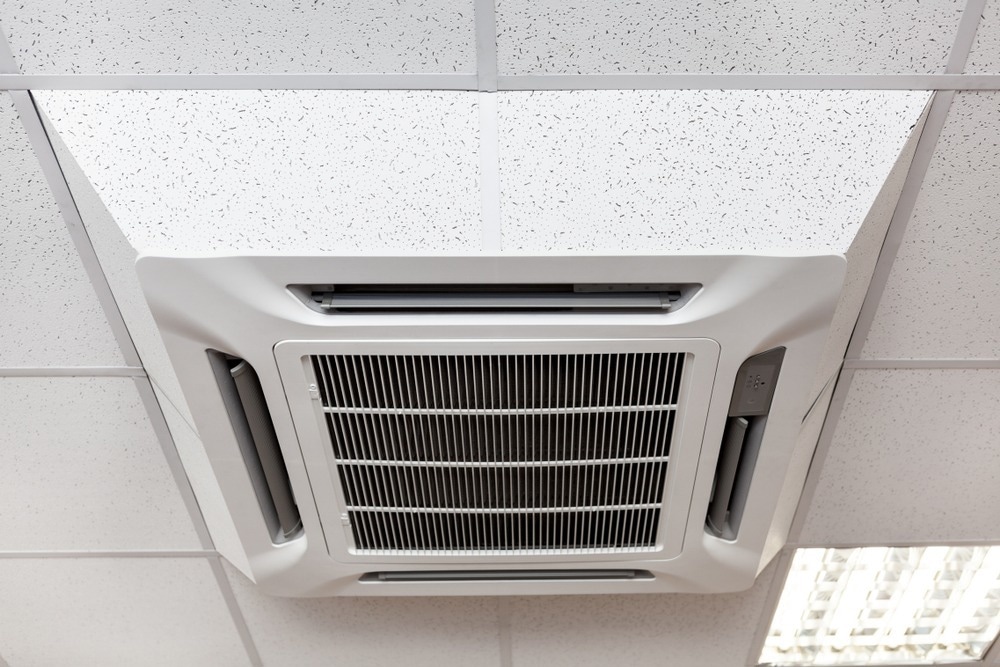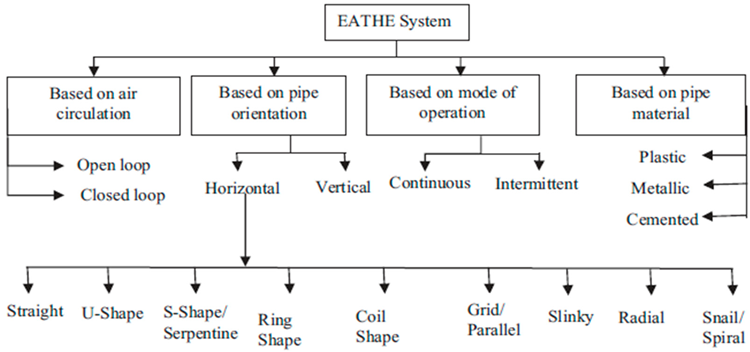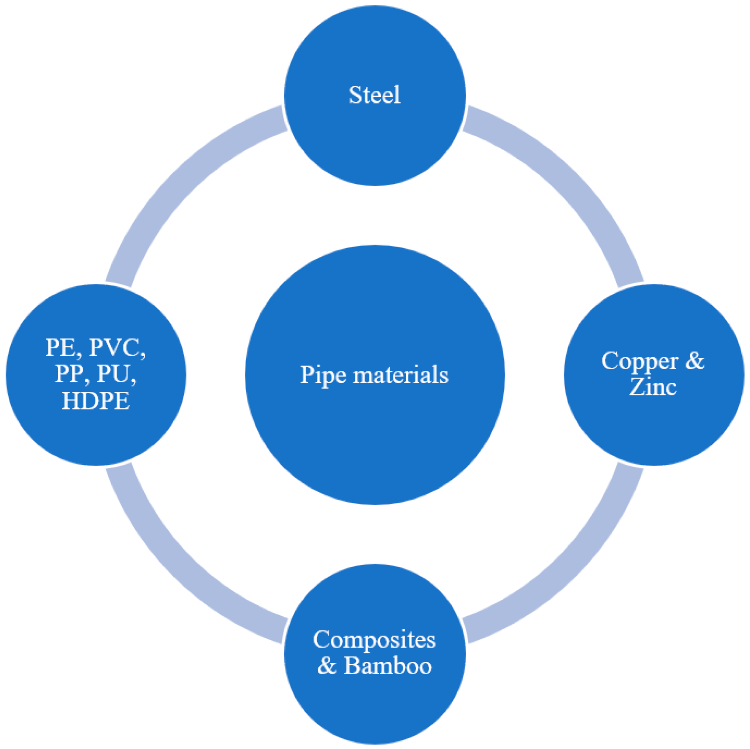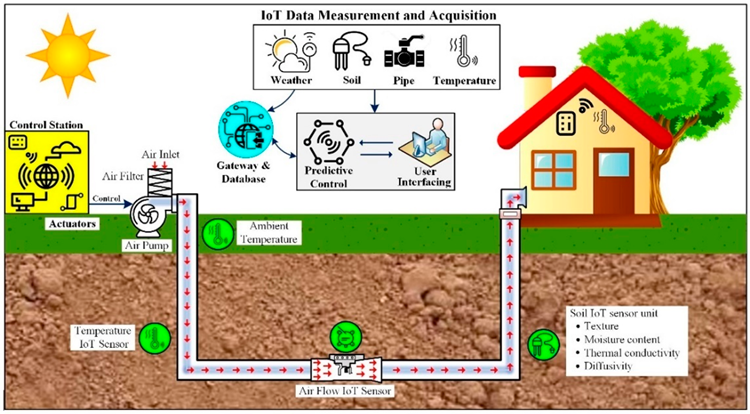Scientists from Italy and India have presented a new review into geothermal systems for environmentally friendly air conditioning. This advance will improve the renewability and sustainability of air conditioning. The paper has been published in the journal Energies.

Study: Renewable Energy Systems for Eco-Friendly Air-Conditioning. Image Credit: Kekyalyaynen/Shutterstock.com
Air Conditioning and the Road to Net Zero
The use of air conditioning to maintain a comfortable ambient temperature in domestic and commercial settings is widespread globally. On average, air conditioning contributes to around one-fifth of all global power demand in buildings. Globally, air conditioning accounts for differing levels of power usage. For instance, in the USA, this figure is 14% overall, whereas in Mumbai, India, it is close to 40%.
According to the High-Level Board on Climate Change, demand could increase thirty-fold by 2100, with a thirteen-fold increase in demand predicted between 2000 and 2050. It is clear from predictions such as these that the trend in air conditioning will only increase in the future, and there exists an urgent need to limit the sector’s environmental impact.
Due to its contribution to global power usage, the air conditioning industry is a key driver of climate change. There exists significant potential to reduce the power demands of air conditioning technologies and, consequently, global energy demands. Moreover, implementing innovative solutions in the sector will help reduce the vast emissions produced by the global energy industry.

Classification of EAHX systems. Image Credit: Greco, A et al., Energies
The problems facing the global air-conditioning industry are complex. Foremost amongst these challenges is the warming world itself: as more countries worldwide deal with increased temperatures, the demand for air conditioning accelerates. This creates a potentially vicious cycle that threatens future generations.
Without technological innovation, novel approaches, and legislation, energy demands and emissions will continue to increase exponentially, jeopardizing the global push toward net zero carbon and sustainability.
Breaking the Cycle
Approaching this problem requires innovation in several sectors. Firstly, high-impact energy-saving strategies need to be implemented. Secondly, air conditioning technologies with enhanced energy efficiency need to be developed. Thirdly, the sector will benefit from the increasing development and widespread implementation of renewable energy strategies.
HVAC performance has become one of the main priorities of green policies and international climate change strategies. This is evidenced by the industry’s increasing focus on stringent energy efficiency standards. Additionally, the construction sector is increasingly focusing on energy efficiency and building classification codes and standards. Furthermore, proactive maintenance of systems is being increasingly encouraged.
The construction industry is working with governmental bodies to realize “green building” criteria set forth in internationally agreed policies and directives. One of the main aims of the industry currently is focusing on promoting renewable energy sources.
Geothermal energy, whilst it has been surpassed in recent years by solar photovoltaic technologies and wind power as a renewable resource, is a mature technology that has been used for decades in various parts of the world.

Variety of materials used in pipes. Image Credit: Greco, A et al., Energies
The Study
In order to investigate the potential benefits geothermal energy can bring to the air conditioning and HVAC industry, the study has proposed a comprehensive and critical analysis of the field. There exists vast potential for the use of this renewable energy source, as demonstrated by its widespread use in Iceland, where geothermal energy accounts for nearly all the energy needs in the nation.
In the EU, for instance, only 3% of energy demands from air conditioning and HVAC technologies are met by geothermal energy, despite the widespread distribution of suitable sites. There exists a substantial disparity worldwide in geothermal energy usage within the sector, despite its potentially vast benefits for realizing truly sustainable and green solutions for the building industry.
Currently, there are two main technologies that are suited to this purpose. These are ground source heat pumps and earth-to-air heat exchangers. The main aim of the new paper in Energies is to provide a state-of-the-art study on these two technological solutions and their potential widespread application in buildings to provide cooling options.
Utilizing geothermal energy sources has the potential to significantly enhance HVAC system energy efficiency, the carbon footprint of the sector, and improve sustainability without sacrificing the performance of systems. Other systems have been proposed to reduce the refrigerant requirements, which can deplete ozone and further contribute to environmental harm.
Earth-to-air heat exchangers, for instance, have several advantages including using air as employed fluids, lower power consumption than conventional technologies, and less upkeep, as well as using geothermal energy as a power source. However, they are limited in terms of initial cost and the need for large areas to install pipes and other critical infrastructure.

IoT-based control of the EAHX system. Image Credit: Greco, A et al., Energies
The study has also evaluated hybrid systems such as earth-to-air heat exchangers integrated with solar chimneys. Several studies have been performed in recent years analyzing the efficiency and performance of geothermal-powered HVAC systems, with promising results.
The authors have also noted that systems require specific materials that satisfy operational parameters and efficiency demands. Additionally, IoT and control systems have been explored in depth in the study.
Whilst considerable challenges still exist with geothermal-powered air conditioning systems, the urgency of climate change action and the awareness of the sector’s contribution to power demands, emissions, and climate change has crystallized the need for innovation within the sector. Geothermal energy has the potential to address many of the key issues in the sector which exist today, with huge benefits for future generations in a warming climate.
Further Reading
Greco, A et al. (2022) Renewable Energy Systems for Eco-Friendly Air-Conditioning Energies 15(15) 5519 [online] mdpi.com. Available at: https://www.mdpi.com/1996-1073/15/15/5519
Disclaimer: The views expressed here are those of the author expressed in their private capacity and do not necessarily represent the views of AZoM.com Limited T/A AZoNetwork the owner and operator of this website. This disclaimer forms part of the Terms and conditions of use of this website.